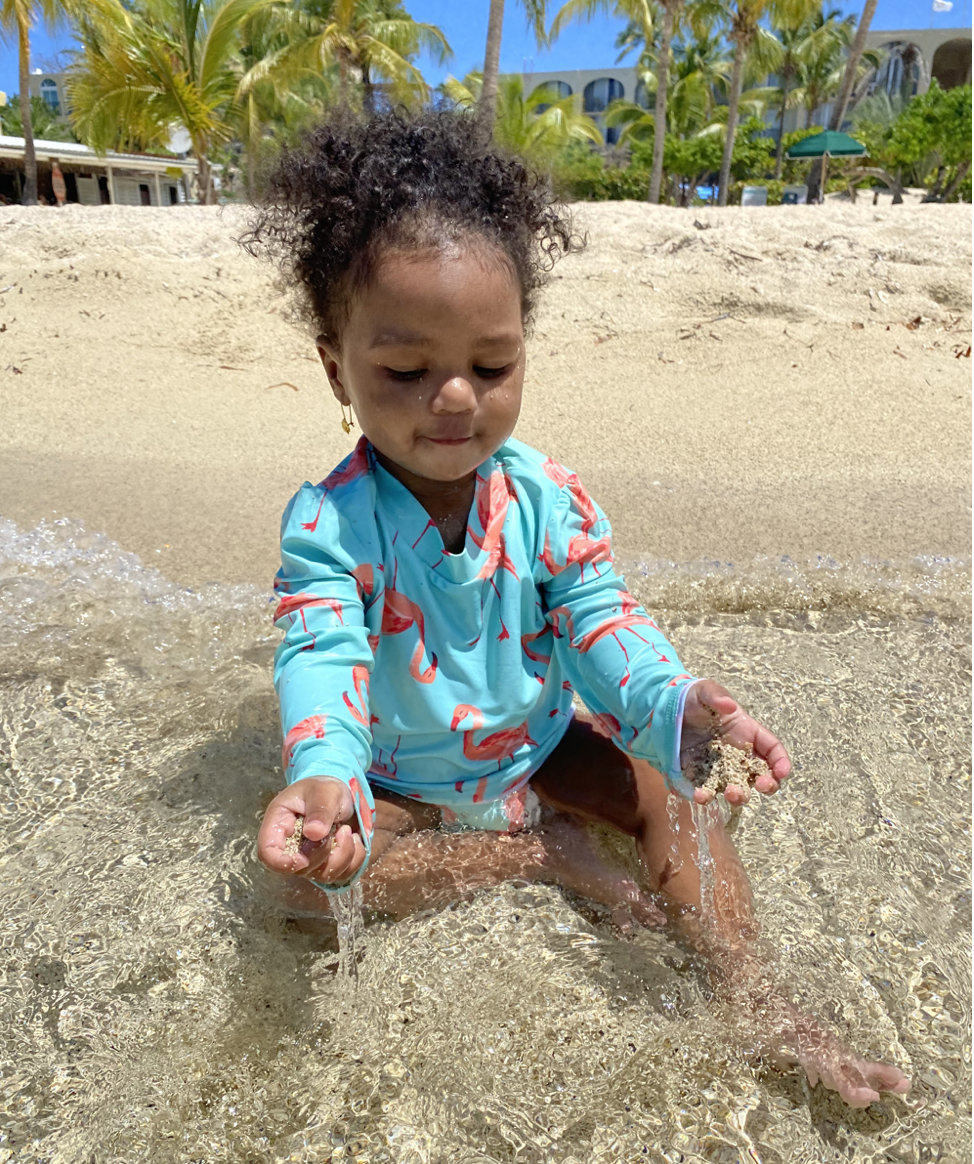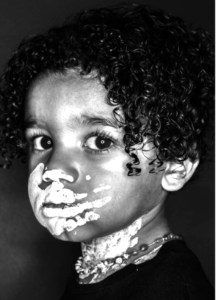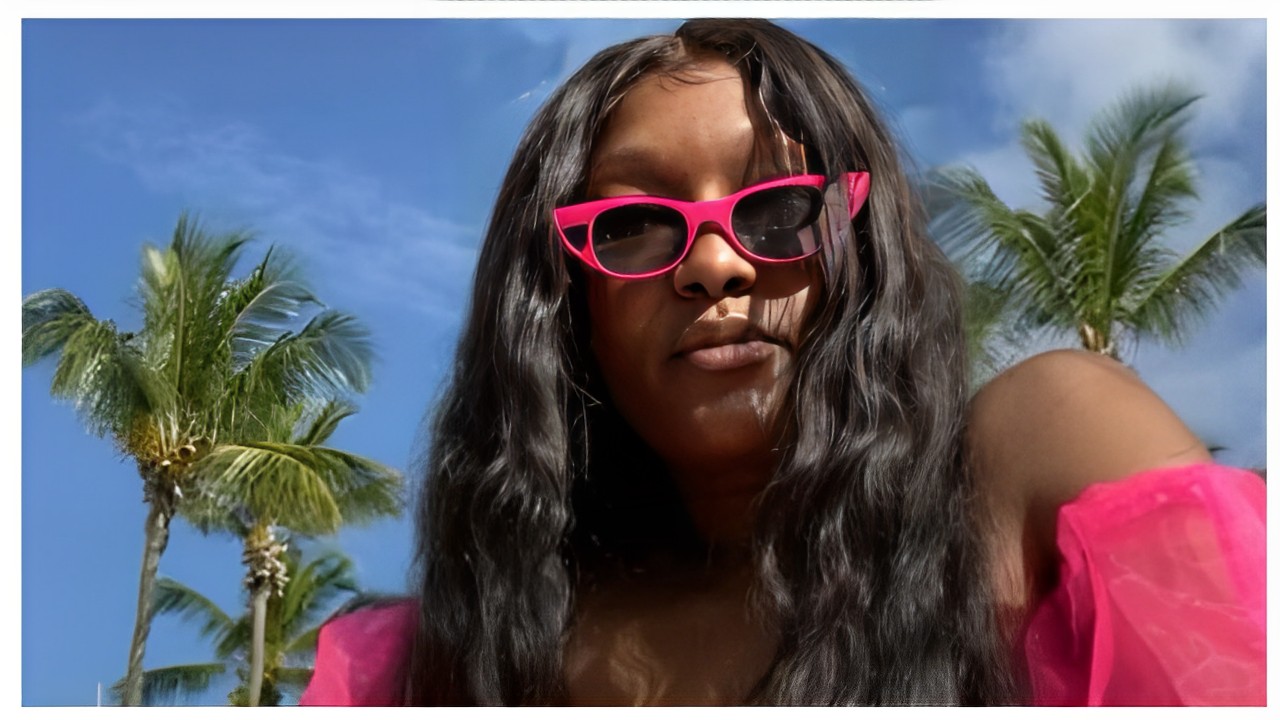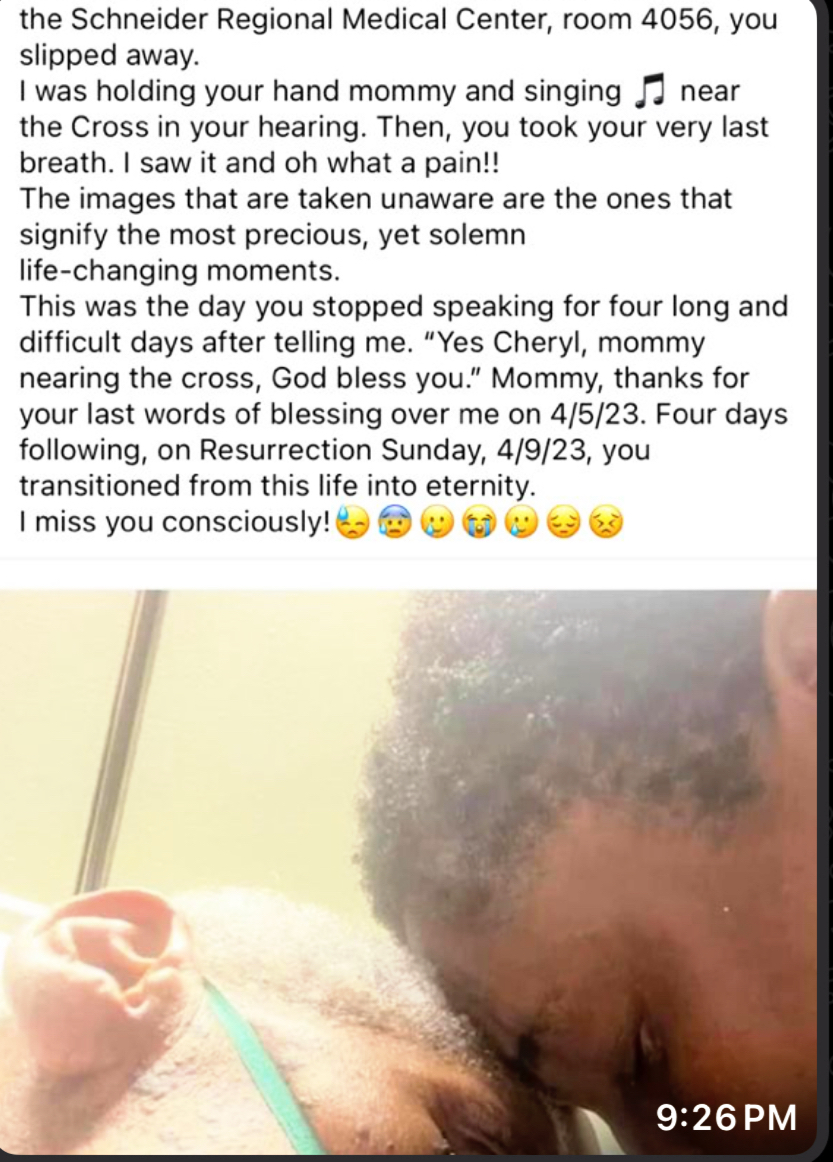by Wilah-Marie Baptiste
*NOTE: Jamila Lyiscott, PhD., aka, Dr. J, is an aspiring way-maker, a community-engaged scholar, nationally renowned speaker, and co-founder/co-director of the Center of Racial Justice and Youth Engaged Research. Dr. J is most well known for being featured on TED.com where her video, ‘3 Ways to Speak English,’ has been viewed over 4.8 million times, and for her commissioned TED Talk, ‘2053’ in response to the inauguration of the 45th occupant of the white house.

Jamila Lyiscott’s 2014 spoken-word essay presentation carefully entitled, ‘3 Ways to Speak English’ @https://www.ted.com/talks/jamila_lyiscott_3_ways_to_speak_english?language=en highlights her ability to be ‘trilingual,’ and triggers an automatic definition of a person’s ability to speak three different languages fluently. According to Catharine Seabrookes (https://uvivoice.org/im-articulate-an-intellectual-response-to-spoken-word-tedtalk) Lyiscott’s interpretation, however, delves deeper into a social issue, cultural identity, language variation, and social stratification.
It reminded me of the way my teachers acted when a new student spoke proper American English and the times my parents spoke so weird when they were on the phone sometimes or why’d they’d speak properly to white people in restaurants or on the beach. Why did they feel the need to do that rather than just speak? It confused me as a child because I processed it as “Oh, white people need to be spoken to properly… because they’re white. I need to speak properly.”
Oh, white people need to be spoken to properly… because they’re white. I need to speak properly.
 The very first line happened to me when I was little. I was maybe 10 or 11 and I was on the beach teaching my little siblings how to dive when some older white ladies walked/waded past and said to me “Oh, you speak so well.” I was confused, but before I could even respond, my dad, who happened to be a few feet away, butted in and accepted the ‘compliment’ for me. Forgetting my dad interjecting where he was not needed, why did she say that? Why was she so shocked that I was describing a rather simple process to my siblings? Looking back, I realize how strange it can be.
The very first line happened to me when I was little. I was maybe 10 or 11 and I was on the beach teaching my little siblings how to dive when some older white ladies walked/waded past and said to me “Oh, you speak so well.” I was confused, but before I could even respond, my dad, who happened to be a few feet away, butted in and accepted the ‘compliment’ for me. Forgetting my dad interjecting where he was not needed, why did she say that? Why was she so shocked that I was describing a rather simple process to my siblings? Looking back, I realize how strange it can be.
Now, I do speak in the typical St. Thomians accent often but the honest truth is that it comes more natural for me to speak ‘properly’ because that was the first thing I ever heard. I didn’t go to local daycares or aunties; I was sheltered. I stayed home and listened to tapes where a white man with a very calm, soothing yet enthusiastic voice taught me to read, notice vowels and consonants and he read stories to me. To compound this, when I did watch tv, I watched Disney in my free time, so I spoke ‘properly’ out of habit.

I do note that many of these issues happen to American blacks rather than Caribbean blacks because of the diversity (or lack thereof) in the US. In the poem, she repeated I’m articulate, something she never thought about until that lady brought it up. My counselor mentioned that – because we live in the Caribbean and we [the USVI] is territory of the U.S. – we are bilingual. Initially, we thought she [counselor] was lying but we spoke American English and our colloquial St. Thomian English.
Perhaps the most important fact that Lyiscott brought up was the fact that English is literally a combination of so many other languages. When speaking at home, Jamila answered her father ‘properly’ rather than in their local dialect. This happened as a result of the ‘compliment’ that she received. Now, I am not saying that anything is wrong with speaking properly because it is important, especially in professional settings. However, this is a slippery slope, and this is how culture is lost. America and its English have permeated the world. They became the standard so to get ahead, people feel driven to hold back their native tongues and dialects.
[American English]… became the standard so to get ahead, people feel driven to hold back their native tongues and dialects.
She also mentioned how people make assumptions because of her hair. I used to feel insecure about my hair myself. I have nothing against ‘locs’ when they are neat and clean but judging someone because of a cultural style is very low. People often think that people who speak differently (often ‘broken English’), are less smart.
At the beach, my mom stopped us from yelling to one another ‘too loud’ alot, through gritted teeth, so we ‘don’t make a clung (clown) out yaself front deez wypipo heh.’ We heard this sermon all the time so now, we don’t ‘do too much.’

…my mom stopped us from yelling to one another ‘too loud’…‘don’t make a clung (clown) out yaself front deez wypipo heh.’
Lyiscott writes about other important topics like the omission of black history in history textbooks. It’s more like “We enslaved you, but we freed you. Moving on.” I was 19 when I found out about the horrors or slavery. Slavery in the Caribbean was just about ungodly; it was so brutal and feral. Hundreds of years of that severe oppression and then all of a sudden, we have to be happy that they let us go. They went through the trouble to rename us as a way to brainwash us as if the transatlantic trip below deck was not bad enough.
I have to say that if there is a section that most I readily identify with it would be when Lyiscott says that she is fed up with the Eurocentric ideals. I do not have a problem with white people. Each race has their perks, and no one should be ashamed for being born as who they are. What I mean is that you do not have to feel bad for being white, but you should not be ignorant or dismissive of the fact that many people are at a disadvantage, because of these standards.




One thing that really stood out to me in Wilah-Marie Baptiste’s article was how culture gets lost when people try to fit in. She explains that when individuals change their speech to meet others’ expectations, they risk losing a key part of their identity. This struggle with code-switching shows the challenge of balancing cultural preservation with the need to fit into society. Your own experiences reflect this, highlighting how societal pressures shape language and self-perception. It’s so important to celebrate dialects instead of hiding them. How can we create spaces where everyone feels free to express themselves without worrying about fitting into someone else’s mold?
One thing that really stood out to me in Wilah-Marie Baptiste’s article was how culture gets lost when people try to fit in. She explains that when individuals change their speech to meet others’ expectations, they risk losing a key part of their identity. This struggle with code-switching shows the challenge of balancing cultural preservation with the need to fit into society. Your own experiences reflect this, highlighting how societal pressures shape language and self-perception. It’s so important to celebrate dialects instead of hiding them. How can we create spaces where everyone feels free to express themselves without worrying about fitting into someone else’s mold?
Before I move forward. I would like to state that this piece was well written and demonstrated the everyday dilemmas melanated people go through by simply speaking. Growing up in the Caribbean broken English is the norm and there is no pressing reason to yank. Which is speak properly and formally to others. I had siblings that cared that we did not speak and sound like those around us because they were our circle. They wanted us to speak properly so they stopped us the minute they heard us using some new slang from school. Due to that, I codeswitch when someone does not understand what I speak. I speak slower and more articulately. However, the accent seems to find its way into some words that are more challenging to pronounce. As we move through life, we learn how to adapt with learning what we do not. We always find a way, if we search hard enough. When other people begin to understand language is different everywhere and no one is higher than the rest we will take one step closer to a stronger community.
Before i move forward. I would like to state that this piece was well written and demonstrated the everyday dilemmas Melanated people go through by simply speaking. Growing up in the Caribbean broken english is the norm and there is no pressing reason to yank. Which is speak properly and formally to others. I had siblings that cared that we did not speak and sound like those around us because they were our circle. They wanted us to speak properly so they stopped us the minute they heard us using some new slang from school. Due to that, I codeswitch when someone does not understand what I speak. i speak slower and articulate. However, the accent seems to find its way into some words that are more challenging to pronounce. As we move through life, we learn how to adapt with learning what we do not. We always find a way, if we search hard enough. When other people begin to understand language is different every where and no one is higher than the rest we will take one step closer to a stronger community.
My mother always taught me to speak using standard English (as opposed to saying “proper English”) which made it easier for me when it came to speaking in a professional setting. That said, I tend to normally speak “properly” on a normal basis. This led to being told I was articulate and spoke eloquently by much older adults and white people and being told I spoke “white” by my peers. Growing up, this was so confusing because I got mixed messages on the way I spoke. If I tried to force a VI accent then people would cringe but if I spoke how I normally do then people thought I tried to act better than where I came from. I think people should just be allowed to speak how they naturally speak as long as it is appropriate for the setting.
Like the author, I grew up with a mother who, for as long as I can remember, spoke “proper.” For that reason, some of that “proper” talking trickled down to me, and to my chagrin, I’ve had people ask, “Why you yanking” or “You weren’t born here?” In my strongest Virgin Islands accent I would proudly proclaim, “I from right here.” Virgin Islands language, what they sometimes call “broken English,” or any other language, is proper and beautiful in its own right. No one, whether Journalist or regular Jill or Joe Smoe, should HAVE to alter their authentic voice to make their audience comfortable.
I was raised to speak “properly” when I am conducting business or addressing authority, but I always found it confusing. While I can see the reasoning behind this way of thinking, I also can see how condescending it is to tell someone to speak “properly”. We shouldn’t be discouraged to use our native style of speaking. We should be proud of where we come from.
The idea of code switching is so imbedded into our lives most of us don’t realize we did it. I recall when I was about 11, I moved to Maryland to live with my mother. My accent was abnormal to everyone around me and I did not how to conceal it. After being asked to pronounce “three” for about a year, I began to pick up the stateside accent from my classmates. This was something I did naturally to avoid sticking out. Now I am able to switch back and forth depending on who I speak to. But I do believe no one should ever feel like they MUST speak a certain way. We should be able to speak comfortably without worrying about how others may portray us
The idea of code switching is so imbedded into our lives most of us don’t realize we did it. I recall when I was about 11, I moved to Maryland to live with my mother. My accent was abnormal to everyone around me and I did not how to conceal it. After being asked to pronounce “three” for about a year, I began to pick up the stateside accent from my classmates. This was something I did naturally to avoid sticking out. Now I am able to switch back and forth depending on who I speak to. But I do believe no one should ever feel like they MUST speak a certain way. We should be able to speak comfortably without worrying about how others may portray us.
When it comes to code switching, I relate to the author of this article very well for my parents would usually said the same things around folks of higher status or of certain ethnicities that the author’s parents would say to her when she was a kid. When I was between the ages of 10 and 13 my parents didn’t use the same phrase of, “‘too loud’ ‘don’t make a clung (clown) out yaself front deez wypipo heh.’” that was spoken to the author by her parents but I could remember when my mother’s students would make remarks like that, or even see the look of nervousness they had which they specifically attributed to speaking to a person of a different status, or ethnicity.
When I see situations like this it saddens me for I now have to admit to a dark truth of how racism, segregation, and slavery as a whole have scarred our people and have caused them to view themselves as someone or something that needs to change or conform. Another, good point made by the author that I also agree with is to not see this sense of conforming as necessarily a bad thing, for speaking proper grammar is essential in any society, and though it maybe stereotyping we have to be aware of the racial privileges that others have as a result of just being born the way they are. It is as a result of this that instead of being afraid of one another every time we speak maybe we should be more understanding of each other as we take part in our day to day life in different social settings.
Overall I would have to say that I agree with the points that the author made and find many similarities of it with my own childhood when I has thirteen. However I would like to state that as adults we need to read the room be aware of ourselves and others and make sure that everyone feels inclusive, because dialect or not their is a time and place for everything and race is only a big of an issue as you make it. Those are my two takeaways that I would like to add and give to the author after reading her fabulous work.
I need to articulate for who? Why is it that “dem udder folks tinks I’m stupid cause I don’t talk like dem?” Dey need to articulate! Eurocentric folks are forever making English rules to satisfy their audio palate. Reminds me of the missionaries calling Africans heathens because they didn’t serve God like them.
Our own dialect is important. However, proper speaking should never be determined by a race, especially on the phone. It annoys me to hear someone say that the person on the phone sounded like a white lady. Blacks speak proper english as well. Speaking dialect does not determine your intelligence either. Folks just chooses to embrace their culture and dialect they grew up with or enjoy hearing their ancestors speak. This is a great post.
Practically everything she described in this article is also my life story. My Parents both came from the island country Dominica, where they were a colony a several European countries. Dominicans speak with their own dialect and pigeon language called Pattua. My father migrated the US as an older teen, and my Mom just decided to be different, and spoke properly. Later, she became an English Teacher. When they had my brother and me, we learned from them how to speak; no aunties, no neighbors, no friends to sway our vocabulary away from what we heard and read at home. The phonetics that I learned since kindergarten stuck with me. Today when people around me get surprised about the fact that I’m local, My explanation is that I speak what I read. It has been a struggle for most of my life to prove that belong among people here. The flip side to the problem that was posed in the article ( “Oh, white people need to be spoken to properly… because they’re white. I need to speak properly.” ) is people who look like me, taking proper speech negatively. I may seem too white, not cultural enough, ashamed of my heritage, when these things simply aren’t true.
I enjoyed reading your analogy on Ms. Jamila’s powerful presentation Wilah- Marie, you made it very clear and understandable. I remember encountering someone who said “Oh you speak so well” also. In my head I was like, this is not a true compliment because it was like saying, I speak well considering that only white people speak well, or the person presumed I am not to speak well due to the color of my skin. She really articulated why African-Americans feel that they have to portray themselves depending on who they are talking to. I do believe that everyone should be able to speak in their own dialect and language without having the need to code-switch depending on who they are speaking to. I really liked that you pointed out the rhythm in her speech, particularly the Eurocentric ideals aspect of the speech. Overall, great explanation.
This was a great explanation of Jamila’s TED talk. It is true that English is made up of so many languages – Latin, Greek, Spanish. I find it ironic that all other languages are looked down upon despite the fact that English is every other language. The “broken languages” of the world are one of the world’s most unique aspects. I too was raised to believe that you have to speak “properly” especially to the white people because it was unprofessional and they might not understand what I was saying. Growing up only learning that will definitely make you judge others for embracing their native tongue. The suppression of other languages because there is deemed a more superior one is ridiculous. All languages should be respected as much as the next.
Ms. Lyiscott in her presentation dealt with the everyday circumstances that people of color have to deal with. There are valid and important points raised by the author in this article. It seems to be a pattern that the Caribbean has to adapt to the way the American speaks thereby neglecting one’s own culture, language, or the dialect. It is one of the ways which can be considered where the people of color are being enslaved all over again. I believe regardless of the color of their skin people should be free to practice their dialect, language, and culture without being intimidated or stigmatized because they speak differently. It is time that the Eurocentric ideals be eradicated and people learn to accept each other for who they really are in an effort to eradicate the ugly stigma of racism.
The importance of a person that is proud of ethnicity and race is emphasized in this article. A person who is fluent in their native language should not be ashamed of it. Language proficiency is not a measure of a person’s intelligence. People are more confident when they speak in their native language rather than trying to impress someone or a group from another race by speaking properly or acting in a certain nonverbal way to impress a particular group of people from another race in order to present themselves in a manner to indicate to that individual that they are different. Still, in reality, they appear to be so strange on the phone with families or friends but speak calmly and properly.
There is nothing wrong with speaking properly, but culture may be lost when an individual appears to forget his or her own native dialect, instead beginning to develop and advance in another language because the language appears to be a standard to get ahead, and people feel driven to hold back their native tongues and dialects, cultures are lost through this because languages are one of the most unique aspects of culture and it is unique to any culture. I enjoyed this article Ms. Wilah-Marie Baptiste did an amazing job.
This article demonstrates hints of pathos and the pros and cons of what such a race has to deal with. Anyone should be comfortable in the way they speak. The diversity in society, they have now caused many of us not only to speak but to behave in a certain way depending on the situation. This also refers back to code-switching where we would have articulated our words based on context and setting. Personally, I think it is okay that society has made it this way. We can argue that it forces you to explore something different even in your own language. For the most part, at least we know that speaking in our dialect will grant us uniqueness and a level of independence that people should always respect. Additionally, it also makes those linguists more distinct than any average person. I’ve never encountered such scenarios where I was questioned, complimented, or insulted on my speaking whether I chose to be proper or dialect. Honestly, it could be because ninety percent of the time, I aim to be proper in the way I speak to most people regardless of strangers, friends, or family. This being said, that doesn’t mean that there wasn’t a chance/moment where I have spoken to a white person in dialect. With me being confident in the both avenues I choose to speak with, I will not succumb or feel ashamed about it.
This article emphasizes the need to be proud of one’s ethnicity and race. An individual who is proficient in his or her local dialect should not be ashamed of it. Language proficiency is not a measure to determine the level of smartness an individual possesses. People are confident when they speak in their native dialect rather trying to impress someone or group from another race by speaking properly or acting in a certain non-verbal way to impress a certain group of people from another race in order to present themselves in a manner to indicate to that individual that they are different but in the real fact they seem to be so weird on the phone with families or friends but speak calmly and properly to another race other than their own race and this can be misinterpreted or confused by kids because they processed it as “Oh, white people need to be spoken to properly… because they’re white. I need to speak properly.” However nothing is wrong speaking properly, but culture may be lost when an individual seem to forget his or her own native dialect, instead began developing and advances in another language because the language seem to be a standard to get ahead, and people feel driven to hold back their native tongues and dialects, cultures are lost through this means because languages is one of the most unique aspect of culture and it is unique to any culture and phasing out such dialect which is unique to that culture means the culture is totally lost.
Since I’ve gone through similar things as you have, I can appreciate your perspective. My mother taught me how to speak properly in front of white people when I was a child, so it was only natural that I did the same. Because of how I was raised, I’ve always believed that we should be more polite to them and use different language when conversing with them. I eventually mastered code-switching and was able to use it off-rip. But the more I spoke politely to white people, the more I began to feel that my natural way of speaking wasn’t intelligent enough to be said. I completely understand what you meant when you said that people feel pressured to hold back their native tongues and dialects in order to succeed. I also feel that I identify mainly with Lyiscott when she said she was fed up with Eurocentric ideals. I just feel that a race shouldn’t think they speak better than another race or is more superior because other people are born with disadvantages that they aren’t.